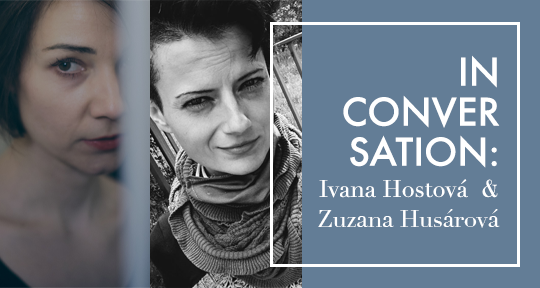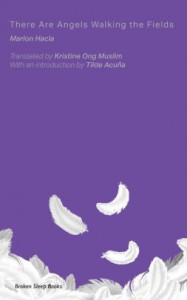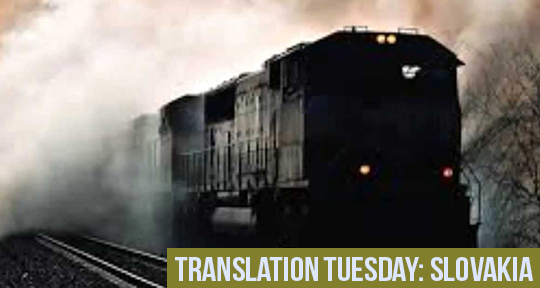In 2020, the Slovak poet and intermedia artist Zuzana Husárová and the Slovak sound artist and software developer collaborated with Liza Gennart, a neural network they programmed, to write the poetry collection, Outcomes of Origin (2020, VLNA / Drewo a srd). To the surprise of many, the work won a major Slovak national award for poetry. In this essay, the second part of our coverage on Liza Gennart, the critic and scholar Ivana Hostová contextualizes the project within the rapidly developing field of electronic poetry, examines Liza Gennart’s subversive, unsettling poems, and explores their implications for our relationships with humanized machines. The following excerpts from Gennart’s collection were translated by Hostová.
Miscellanea 4.
Do you enter this world?
There is nothing to do. Not even in the bedroom, such misfortune, you leave it soak
in the brain and perhaps you also do it for my sake. But for my sake.* late afternoon
* because it doesn’t sound like a reproach
* but you agree: it resembles a colourless key
* because wet words float out the window
Liza Gennart: Outcomes of Origin (Výsledky vzniku, 2020, VLNA / Drewo a srd), created by Zuzana Husárová and Ľubomír Panák, excerpt translated by Ivana Hostová.
In a recent ambitious attempt to comprehensively account for the lyric experience and practice in Western culture, Jonathan Culler in his Theory of the Lyric (2015) names the ritualistic as one of the defining features of what a poem has been over the centuries. Although Culler mostly excludes experimental writing including electronic poetry from his discussions and therefore restricts the scope of his analysis, the feeling of a ritual is surely present upon a readerly encounter with a book of poetry generated by one of our current Others—computers, neural networks, and machines. These, to our horror and admiration, have now absorbed the entire textual world produced during the whole history of humankind. We cannot help but wonder how much of what remains hidden from us they know and to what use they might put it. Instructing a neural network to write poetry provides an uncanny glimpse of such depths and shallow waters, reflecting the surfaces and masks of humanity.
Poetry generated by artificial intelligence, as research into readers’s responses shows, tends to be most interesting when it involves cooperation between human and non-human actors. One such project, Es Devlin’s Poem Pavilion at Expo 2020 in Dubai, creates poems—in English and Arabic—using words submitted by visitors which are then processed by an advanced machine learning algorithm. The creative possibilities of recent developments in natural language processing have inspired artists and poets all over the world and have given rise to poems, novels, and plays in languages with limited diffusion—including Slovak. The creative duo composed of poet and intermedia artist Zuzana Husárová and the sound artist and software developer Ľubomír Panák collaborated with a neural network Liza Gennart to create the collection Outcomes of Origin (2020, VLNA / Drewo a srd). The book—to the great shock of many—won the national prize for poetry, “Golden Wave,” in 2021.












